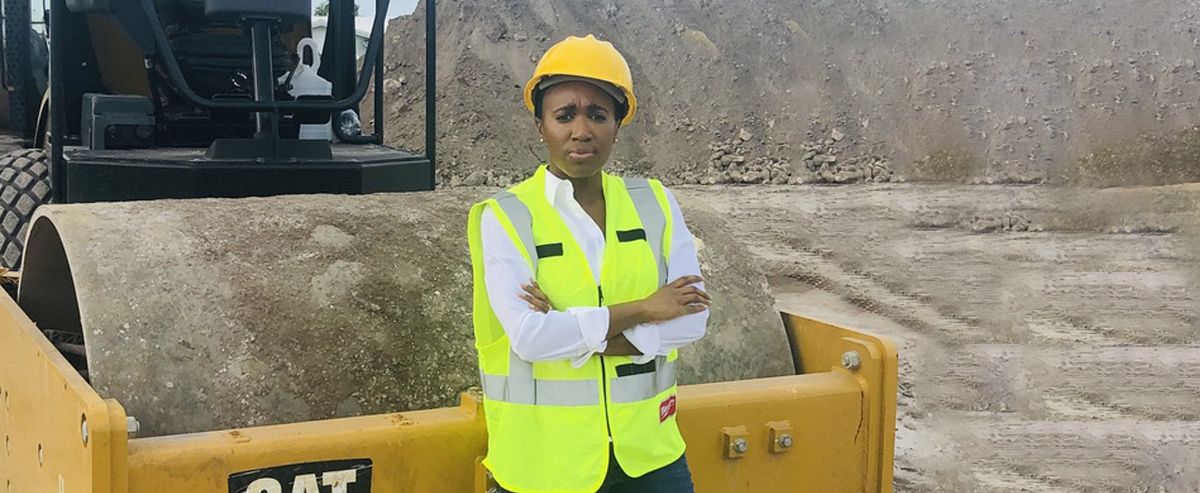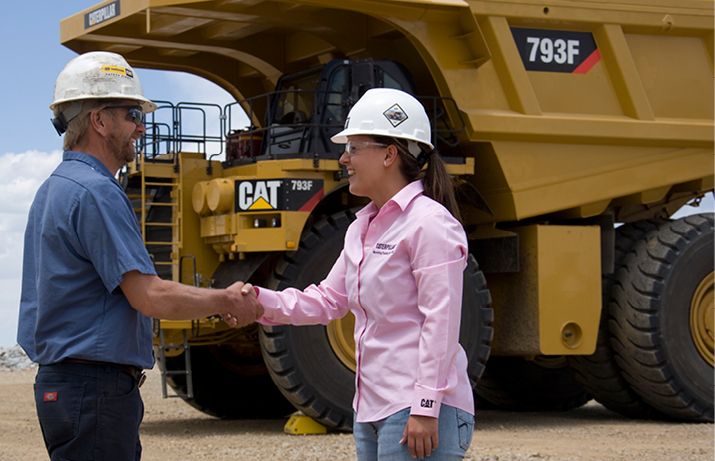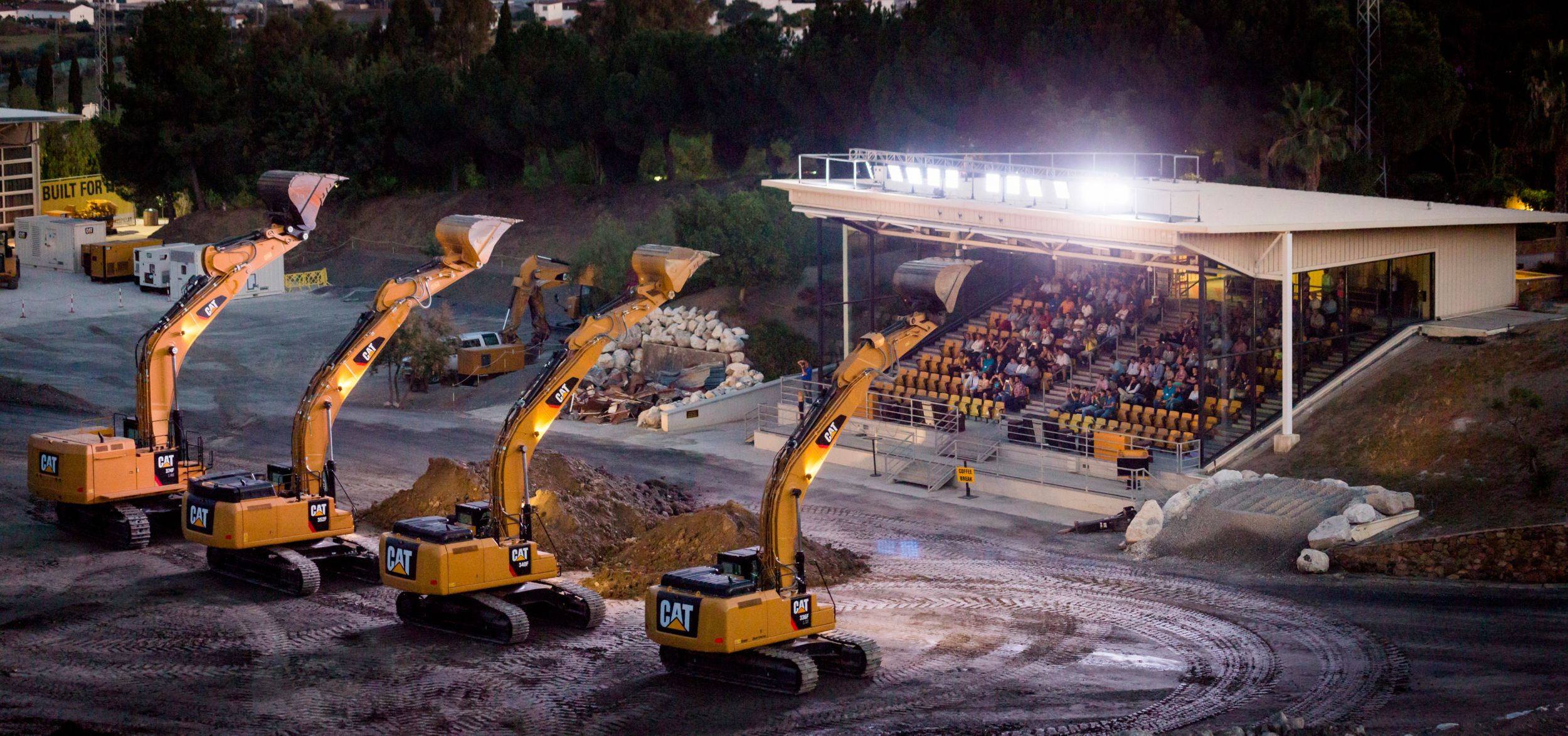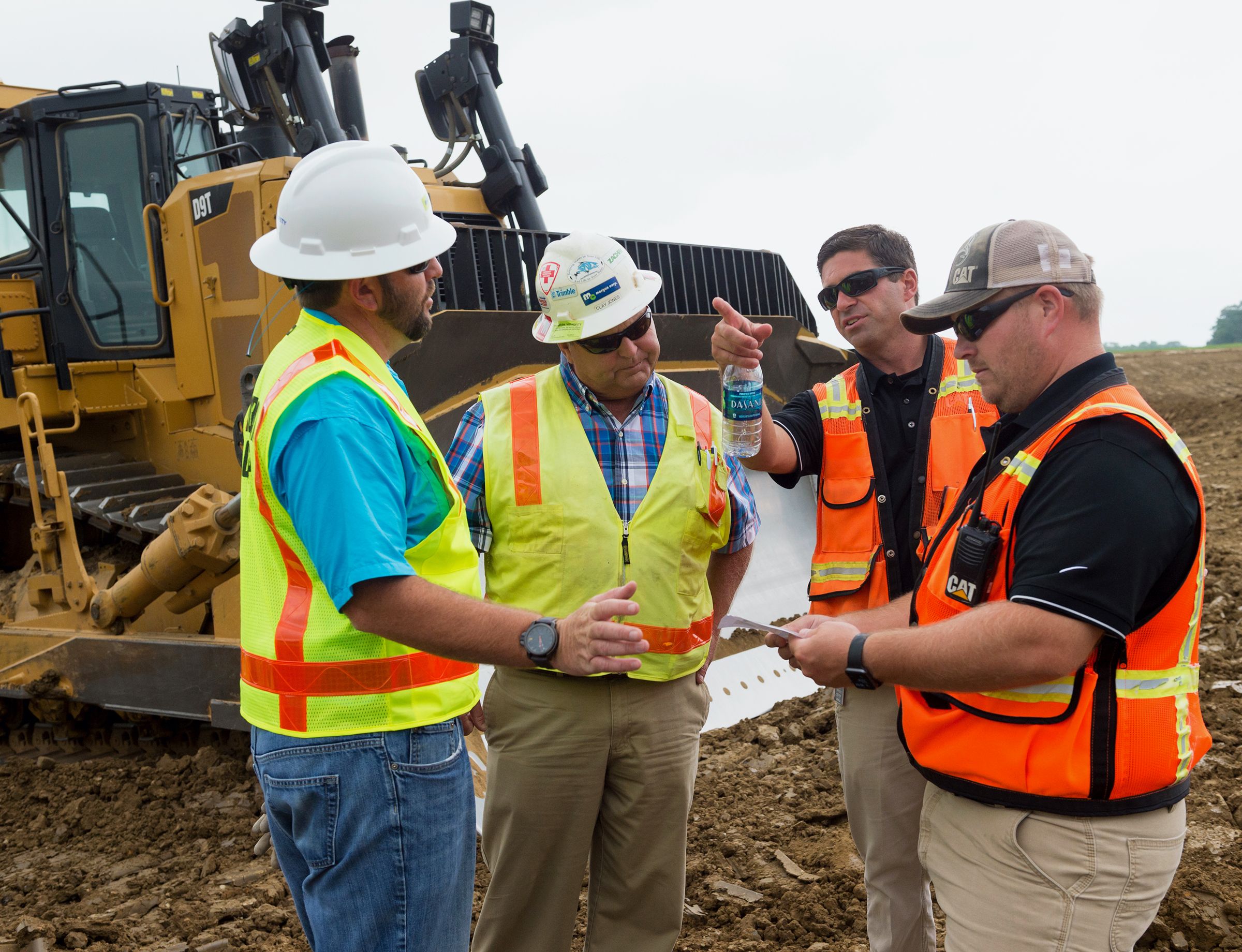

Sign In
Welcome! Sign In to personalize your Cat.com experience
If you already have an existing account with another Cat App, you can use the same account to sign in here
Register Now
One Account. All of Cat.
Your Caterpillar account is the single account you use to log in to select services and applications we offer. Shop for parts and machines online, manage your fleet, go mobile, and more.
Account Information
Site Settings
Security
How to Become an Equipment Operator
Machine operators are in demand all over the U.S. Find out the skills, training and certifications you may need to land an operating job.
By Caterpillar | Updated: March 28, 2022
Have an interest in working in the trades? Becoming a heavy equipment operator may be a great option. Available positions are on the rise and annual salaries are above the national average. And for many in this field, it also brings a sense of pride in their work.
Find out how to become an equipment operator, including what training and skills you need for this career.
What Jobs Are Available to Heavy Equipment Operators?
Many industries need heavy equipment operators. In fact, you might be surprised by the sheer range of fields:
- Road construction
- Residential and commercial construction
- Manufacturing
- Material handling
- Landscaping
- Transportation
- Mining
- Quarry and aggregates
Some heavy equipment is unique to one industry, but many rely on the same machines to get the job done. Let's dive into the types of heavy equipment operators work with most often:
- Bulldozers
- Dump trucks
- Excavators
- Forklifts
- Graders
- Haul trucks
- Pavers
- Skid steers
- Wheel Loaders
With so many equipment types, you'll have the chance to become an expert in different types of machines over time. Keep in mind that the positions you apply for might be machine-specific or more general. Having experience with different types will help you qualify for more positions and make you more desirable to employers.
Why Become an Equipment Operator?
A heavy equipment operator is typically seen as a promising career. In fact, many construction workers report high job satisfaction for several reasons:
- Job Opportunities: The industry is currently expanding, making it easier to land a position. Overall employment of construction equipment operators is projected to grow 5 percent from 2020 to 2030.
- Challenging Work: Operating heavy equipment takes skill. It requires attention to detail, the ability to read blueprints and schematics, significant multitasking, good communication skills, the ability to problem-solve, and a willingness to learn.
- Rewarding Work: Although the job can be challenging, it also offers satisfaction in seeing the results of your hard work — whether that's a new road, skyscraper or playground.
- Pay and Benefits: While the average pay for a heavy equipment operators will vary from state to state, the salary possibilities and benefits packages are generally promising. Strong pay possibilities paired with a relatively low cost for education can make machine operation a rewarding career.
Want to learn more about what makes a great heavy equipment operator? Check out the recent Cat® Global Operator Challenge that searched the world for the most talented heavy equipment operators in action today.
How Much Do Equipment Operators Make?
Your pay will depend on factors like your experience, education level and the company you work for. The median annual salary for heavy equipment operators was $49,100 in May 2020, according to the U.S. Bureau of Labor Statistics. This is 17% higher than the national average for all occupations. The highest 10% of earners (typically those with the most experience and skill) make more than $86,300.
How to Become a Heavy Equipment Operator
There are several ways to become an equipment operator:
- Education: Training programs and companies typically require a high school diploma or GED. Make sure you've completed this level of education before you apply for the best chance of success. According to the U.S. Bureau of Labor Statistics, high school courses in shop, math, and automotive technology are often beneficial to prospective heavy equipment operators.
- Research: Look into the different industries and equipment to find a focus. While you won't need to commit to one industry or machine, it can guide your training and job applications when you're getting started. Consider the common industries in your area and lifestyle factors, like hours and how often you'd like to travel.
- Shadowing: Starting as a laborer or general construction worker is a great way to learn the ins and outs of the jobsite. Going in this direction can help you see workers in action, make connections and be proactive about where you want to work. Getting your foot in the door through job shadowing may also lead to a job offer down the road (with the right training of course).
- Training: Attending a training program or vocational school can help you build up your skill set quickly. Heavy equipment programs may last a few weeks or a year. Costs vary as well and can be anywhere from a few thousand dollars to upward of $18,000. That said, if you have the time and funding for one of these schools, it can be an excellent option.
- Apprenticeships: If a training program isn't the right fit, you can learn on the job. An apprenticeship comes with an hourly wage, so you can support yourself while you get an education. You won't start on a machine right away, but you'll get to work in the environment and learn from industry experts until you're ready.
Obtaining Your Heavy Equipment Operator Certification
Many states require operators to be licensed or certified. And even if your state doesn't, this training can give you a leg up. For those just starting out, certification courses can provide valuable knowledge and hands-on experience that employers are looking for.
You can find programs that offer National Center for Construction Education and Research (NCCER) standards. Examples of these programs are the National Association of Heavy Equipment Training Schools (NAHETS) or the National Commission for the Certification of Crane Operators (NCCCO).
Once employed by a construction, mining or quarry company, you may have an opportunity to take Cat operator training courses. These courses are designed to help you operate Cat machines safely and efficiently on the job.
Tips for Landing an Operating Job
We recently interviewed Turner Mining Group to find out what today's employers are looking for. Their advice on how to become an equipment operator includes the top skills outside of technical operation that companies are looking for. They also explain the questions to ask in your interview to help you stand out. Read more here.
Related Stories
-
How Diverse Hiring Can Help Solve the Construction Labor Shortage
Diverse hiring offers a solution to the construction labor shortage. See how one female contractor’s diverse hiring positively impacted both her business & the community.
Learn More -
How to Plan Amidst Business Uncertainty
Making decisions under uncertainty is no easy feat for any business. Check out our tips for planning during business uncertainty so you can ensure you're ready for 2021.
Learn More Business Tips -
Celebrating 50 Years of Demonstration Training
Celebrate the 50th anniversary of Caterpillar’s demonstration and learning centers with stories about our global facilities and expert demonstration training.
Learn More -
Caterpillar’s Customized Operator Training Courses Helped Morgan Corp.
A customized operator training course from Caterpillar is helping Morgan Corp. increase profits, safety & productivity one jobsite at a time.
Learn More






